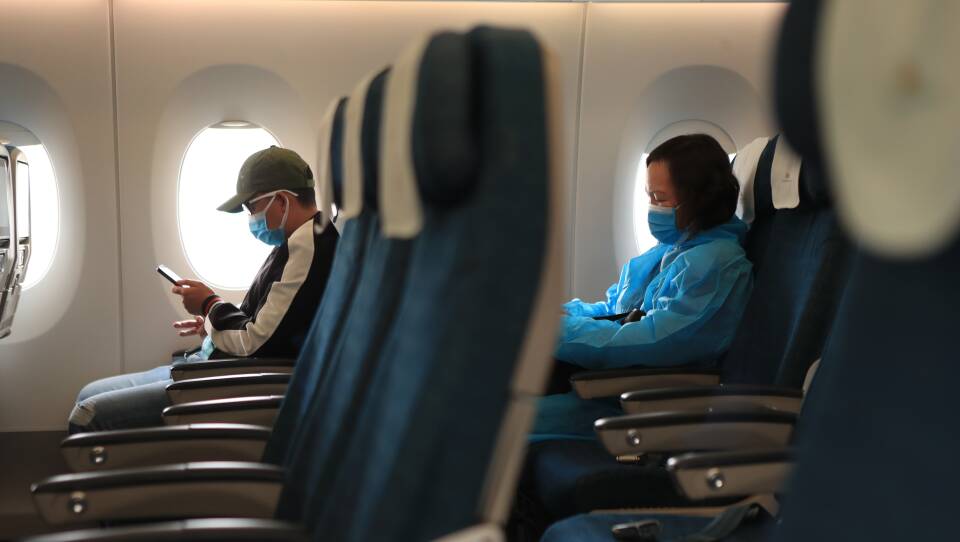The federal court ruling this month that ended the mask mandate on public transportation drew immediate cheers from some travelers, but it upended the immunocompromised community.
At least 2.7% of adults in the United States — about 7 million people — are immunocompromised. They are more susceptible to severe disease if they contract COVID-19, and vaccines are less effective in this population. As mask mandates lift, many have had to curtail their travel plans and make changes in their daily routines in order to feel safe.
Jenn McNary, who lives in Saugus, has two sons living with Duchenne muscular dystrophy and a third son living with primary immunodeficiency, a condition that affects nearly 500,000 people in the United States, according to the National Institute of Allergy and Infectious Diseases.
McNary said her 23-year-old son, Max, is in a gene therapy study based in Norfolk, Virginia, which requires their family to fly there every three months. She said even before the pandemic, her family was acutely aware of mask-wearing as a means of protection. She's discouraged by the vehemence of people who refuse to mask up.
"I just had high hopes that people would realize that we have this whole population of at-risk folks and we would continue the practice of wearing masks in public transportation, Ubers and Lyfts and things like that. But now I think we've learned that the folks who feel that this somehow violates their rights will continue to fight against it," she said.
McNary said she doesn't see broad support from government decision makers either.
"It's unfortunate, but I see kind of wishy washy, back-and-forth policies and mandates, and nobody in power can really agree," she said.
She said her family is scheduled to fly again this summer, but they are thinking twice about the trip.
Organ transplant recipients like David Shakespeare, of Melrose, are also reconsidering their plans in light of mask mandates lifting. He was making plans to travel to Europe with his wife, but those plans are now on hold.
He called ending the mask mandate on planes both discouraging and confusing.
"I try to keep up to date on the latest science and policy and stuff like that. But to be honest, the transplant clinics do a pretty poor job of letting us know what our options are," he said.
Shakespeare had a kidney transplant seven years ago and is part of a study at Johns Hopkins to measure his antibodies to the coronavirus. He said after four doses of the vaccine, he now has what's considered the normal range of antibody protection.
Transplant recipients are often required to take immunosuppresant drugs to increase their chances of a successful transplant, but that regimen makes them more susceptible to the coronavirus. Kidney transplants, like the one Shakespeare received, are the most common type of organ transplant in the United States. Nearly 25,000 people got the same procedure last year, according to The United Network for Organ Sharing.
Shakespeare is also a member of TRAIPAG-Transplant Recipients and Immunocompromised Patient Advocacy Group, which now has 2,000 members. He said one of their goals is to testify at hearings of the Centers for Disease Control and Prevention and the Food and Drug Administration.
"We're basically just trying to keep our plight in people's minds," he said. "It feels like we've faded into the background."
Margaret Miley, who lives in Acton, is currently visiting Berkeley, California. She said she's been dealing with health issues for quite a while and had to make an urgent family trip to the West Coast.
"We spent a lot of time figuring out the supports needed to get me there and the risks along the way, and I certainly looked at the airline website that assured me that there were masking rules, and I don't think I would have made the trip if that requirement was not in place."
She called the abrupt policy change outrageous and shocking.
"I'm sitting on the West Coast and I don't know what to do to keep myself safe."




